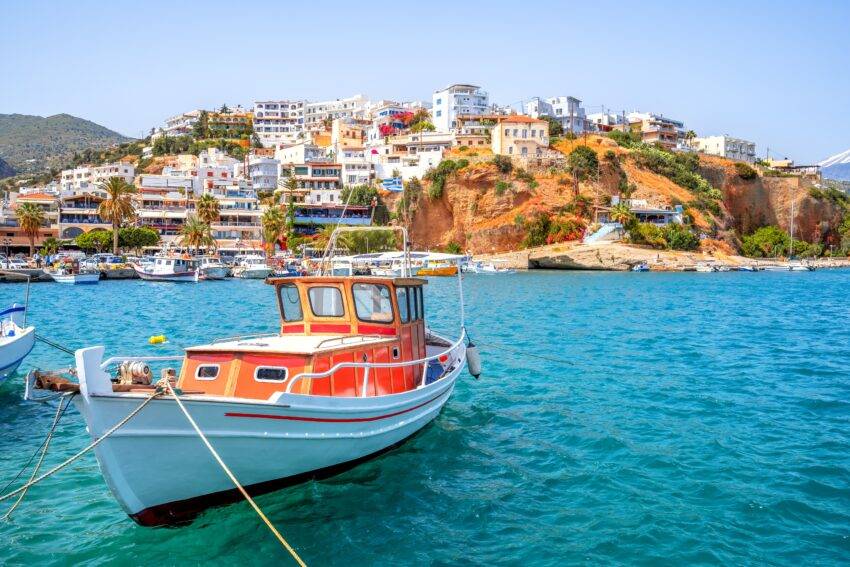Greece currently offers unique investment potential in Europe within the renewable energy and tourism sectors.
Didier Maurin, Chairman of Katleya Advisor SA in Geneva, explains how to invest €2 million in the land of Homer with controlled risks, a return in excess of 10% on your investment, and the full benefits of the country’s legislation and European Union subsidies.
Setting up a local structure to qualify for EU subsidies
The first step to optimising your investment in Greece is to set up an IKE, the Greek equivalent of a small and medium-sized enterprise (SME). This structure will be the vehicle for investments in the country and will ensure that you are eligible for the various European Union subsidies, which can be up to 40% of the amount of certain investments.
Once this stage has been completed, you will need to diversify your investments into four main areas to reduce risk and create greater security for your funds: photovoltaic parks, energy storage batteries, hotels and luxury villas, and the cruise ship sector.
Photovoltaics: The ideal conditions
Investing in solar energy in Greece stands out as a good idea for two reasons. Firstly, because of the country’s exceptional levels of sunshine, which limit intermittence and guarantee strong yields throughout the year, and especially because of the European Union’s massive subsidy policy towards renewable energies.
Ideally, you should invest €500,000 in a solar farm consisting of land covered with photovoltaic panels which produce solar energy, and then sell it to the Greek operator for the management and distribution of this type of energy (ADMIE). The expected return is around 8%, or €40,000, a year.
Energy storage to boost investment in solar power
As well as investing in a solar farm, it is worth putting the same amount into storage batteries, which are designed to store the photovoltaic electricity which is produced. That way, you can store the energy produced by the energy parks and sell it to ADMIE when the price per kilowatt-hour is higher, achieving even greater profit and yield.
The storage batteries can also qualify for a 40% subsidy from the European Union, meaning €200,000 in this case, not to mention a return on your investment of around 6%, or €30,000, a year. On that basis – bearing in mind that your investment only cost €300,000 thanks to the subsidy – the net annual return should be around 10%.
Great opportunities in the Greek hotel sector
A third tranche of investments would be in the hotel sector, either as co-owner of a hotel or as the owner of a luxury villa. Between the income and potential capital gains, the return would also be 8%, or €40,000.
In the hotel sector, if the investment is in the construction of a single hotel, participation in a subsidised scheme is again offered which, according to the current data, covers up to 45% of the total cost of the project with no limit on the amount. If the subsidy is for villas, it is 45-50%, but with a limit of €200,000 for the investor.
Capitalise on Greece’s cruise ship experience
Ship ownership is a part of Greece’s history, particularly cruise ships. This is a dynamic, solid sector within the Greek economy which is actively supported by the European Union.
By investing the final €500,000 in cruise ships – with a subsidy of 40% (€200,000) – you should enjoy a return of around 6% (€30,000) which, including the subsidy, represents 10% a year. This particular subsidy programme is yet to be announced by the Greek government, but it was in place until last year and it is thought it will be postponed until later in 2024.
Dynamic and secure returns
In our Greek company IKE, your €2 million will very quickly reach a value of €2.4 million thanks to subsidies, meaning a capital gain of 20% and an annual turnover of roughly €130,000, or around 8.125%, of the net capital invested. The level of taxation varies according to your tax residence, but it is in your best interests to opt for dividends as they are often taxed at 20%, although the rate can drop to 5% if you live in Greece!
And that is just for starters. One alternative would be to pledge €2.4 million to a bank to benefit from a €3 million loan, which would allow you to increase the value of your investments while receiving an additional €600,000 in subsidies with the borrowed money! And of course, while any form of investment carries a risk, the €3 million will be repaid by the returns generated by the investments themselves, multiplying both the rate of return and the value of the assets you own.


